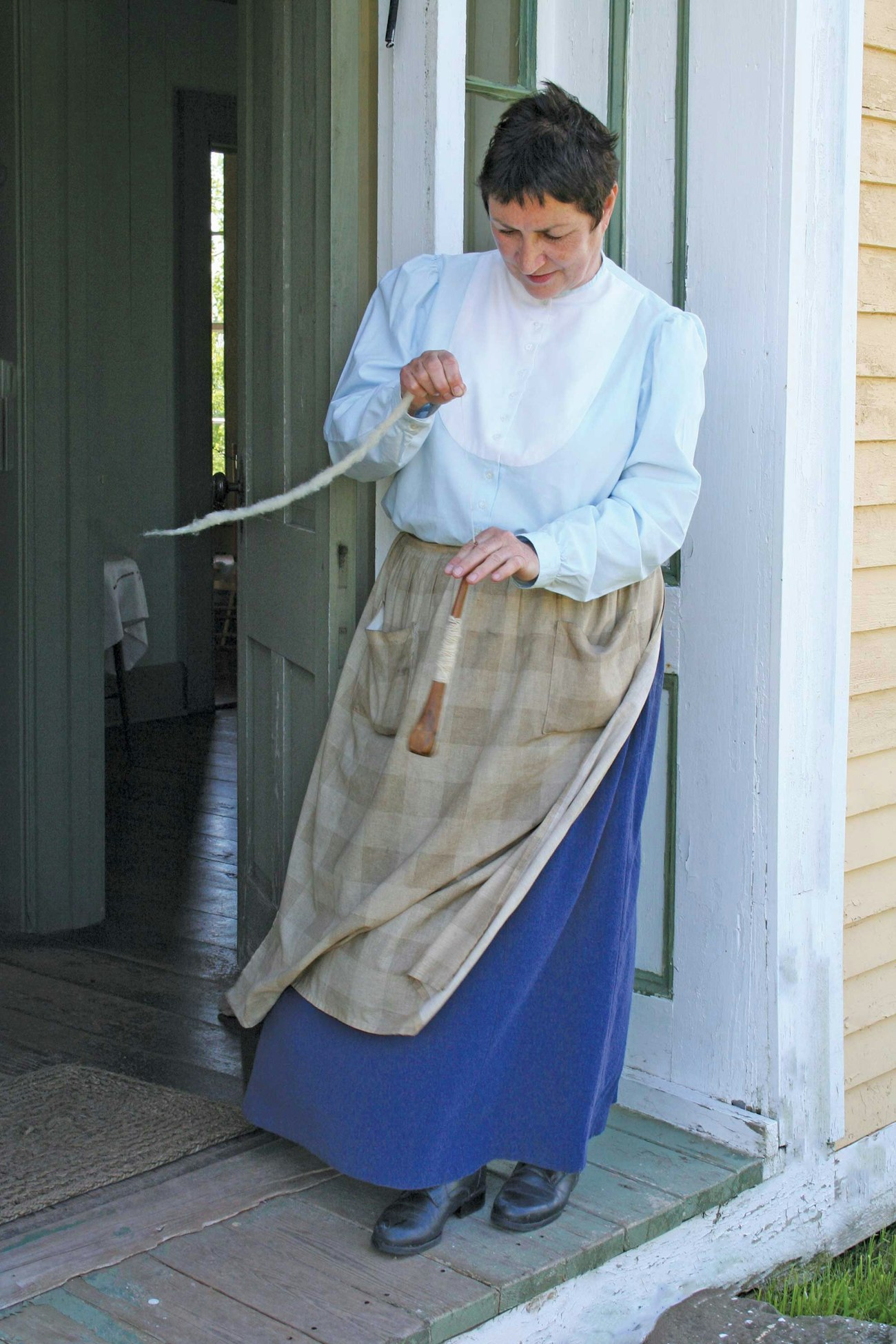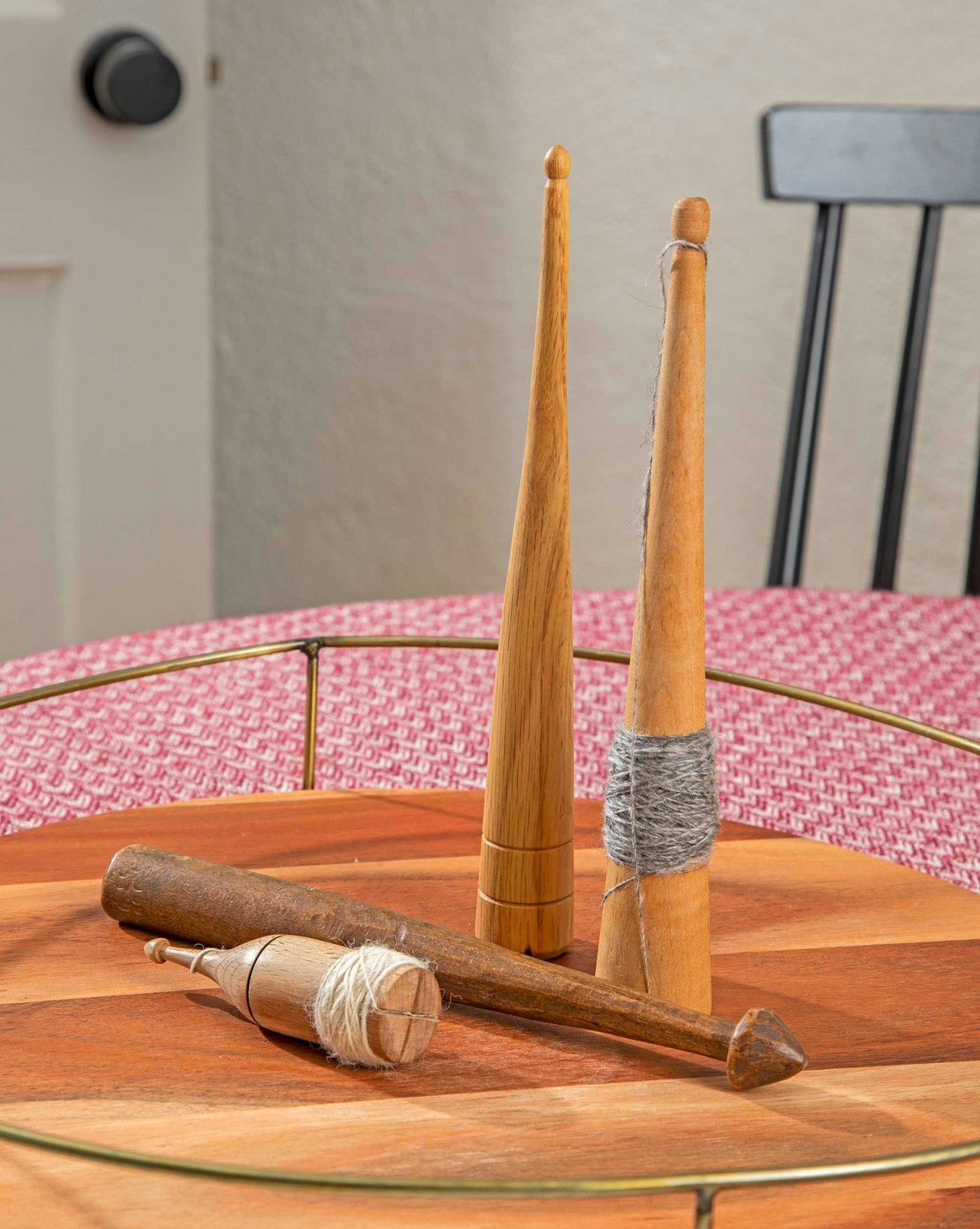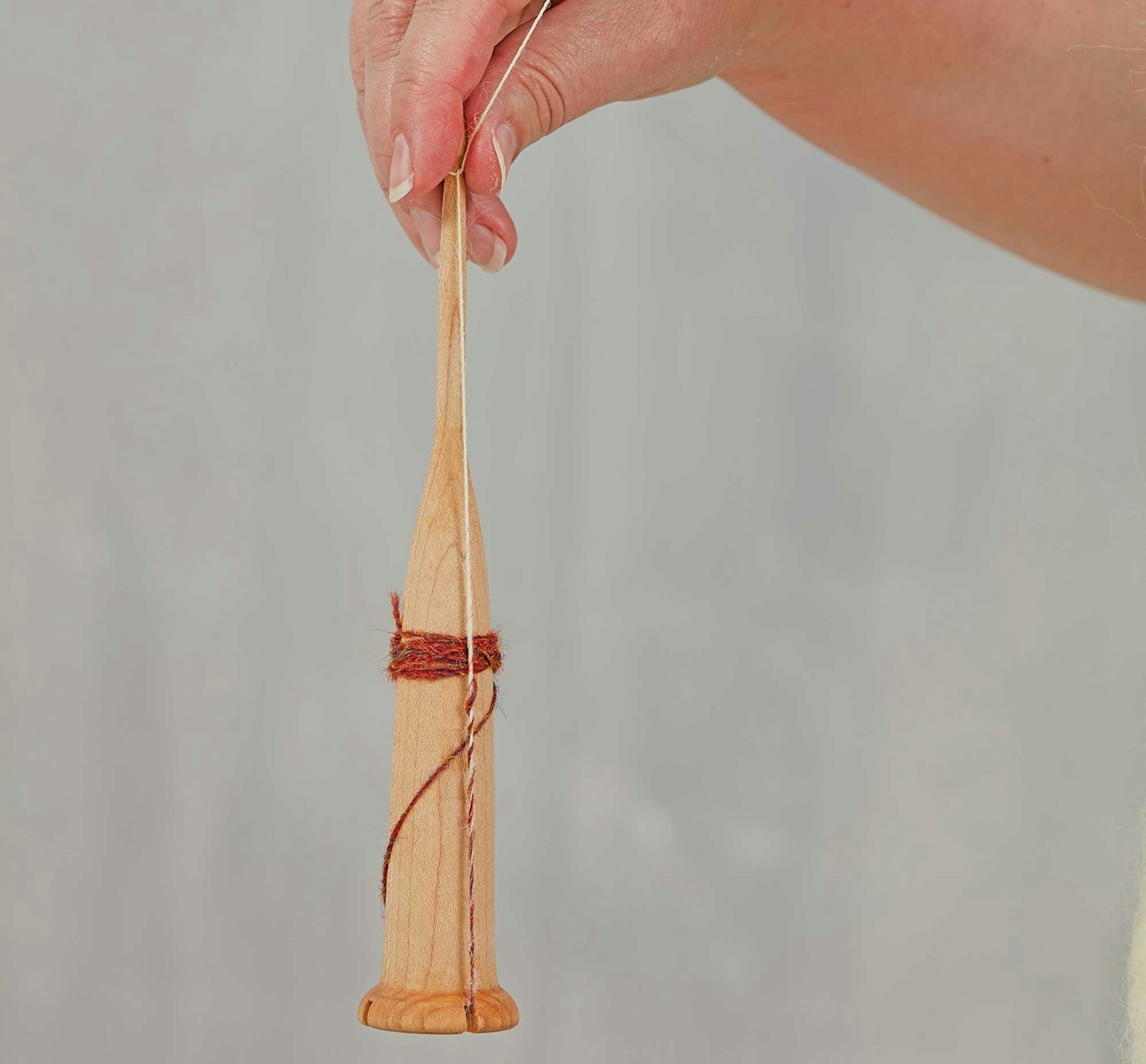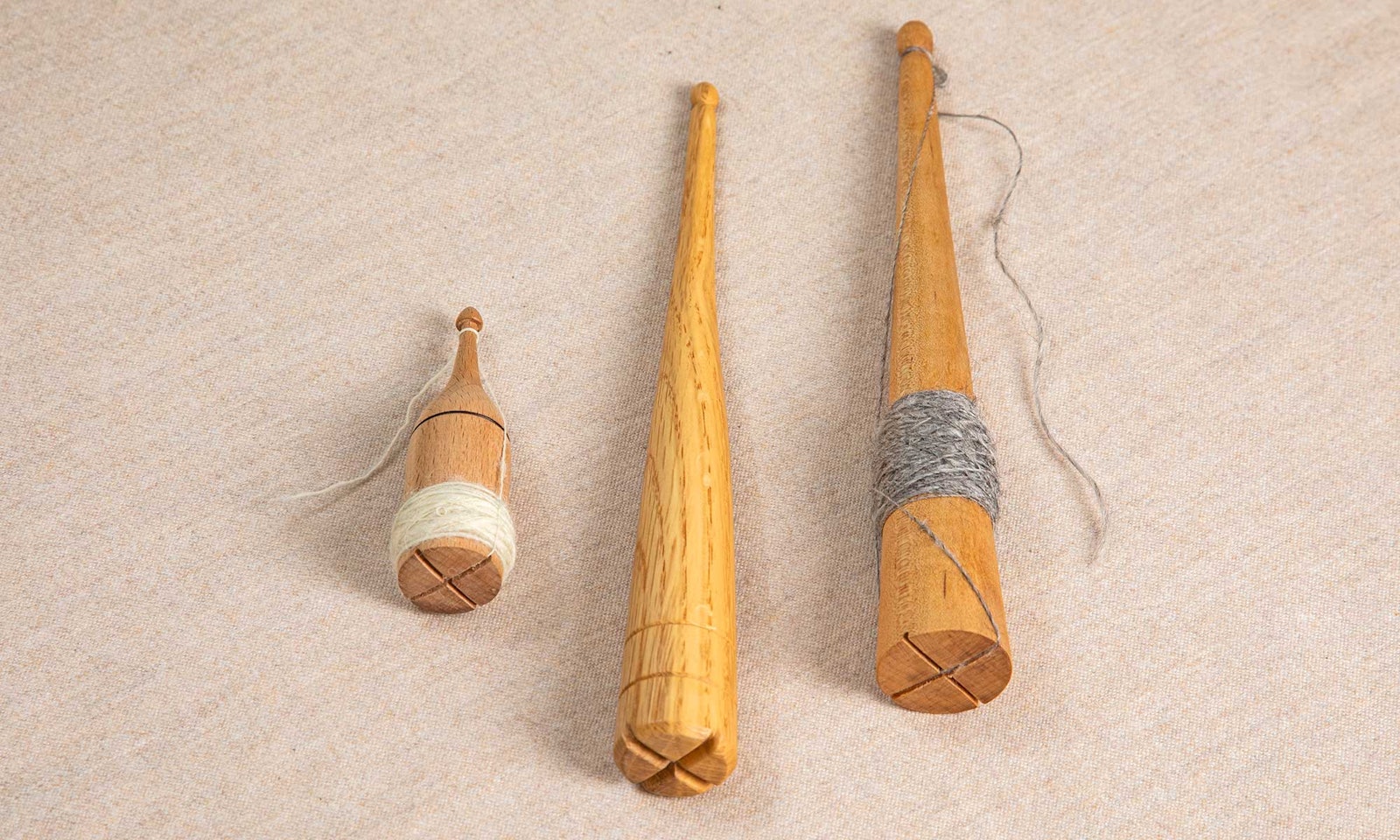Spinners know that spindles are addictive. Before you know it, you’re a collector seeking out special spindles with a unique history and purpose, such as the Scottish spindle, or dealgan (pronounced jal-a-gen), which lacks a whorl.
Spinners have several options for whorl-less spindles, most famously the Russian supported spindle. The French spindle, generally a hand- or lap-supported spindle, becomes a suspended spindle with the addition of a hook for plying.
 Spinner Catherine Gillis uses a traditional dealgan at Baile nan Gàidheal (Highland Village) in Nova Scotia. Photo courtesy of Highland Village
Spinner Catherine Gillis uses a traditional dealgan at Baile nan Gàidheal (Highland Village) in Nova Scotia. Photo courtesy of Highland Village
The traditional Scottish spindle was designed with spinning on-the-go in mind. In the article “Scottish Spinning Traditions in Cape Breton,” featured in the Winter 2018 issue of Spin Off, Dr. Annamarie Hatcher explains, “The dealgan can be used while walking or herding sheep, then stored in a back pocket or in a fold of the kilt.”
Urban spinners rarely herd sheep today, but a sturdy Scottish spindle might be just the tool to have stashed in your bag for spinning while herding a brood of children about town. Plus, in a pinch, Scottish spindles can also stand in for a nøstepinne, a tool for winding a center-pull ball of yarn.
 Sara Bixler's collection of three Scottish dealgan spindles and one great-wheel finger (the dark, wooden tool), which has a similar shape.
Sara Bixler's collection of three Scottish dealgan spindles and one great-wheel finger (the dark, wooden tool), which has a similar shape.
Wisconsin spindle maker Scott Snyder noticed an uptick in the interest of Scottish spindles back in 2016, and since then, the curiosity hasn’t waned. Scott typically spins fingering-weight singles on his Scottish spindles and uses it for plying, too. He says, “You can get a surprising amount of fiber on these spindles. I have put more than eight ounces on one.”
 For a faster spin, set the spindle in motion by flicking the tip. Turning from the wide bottom is much slower. Photo by George Boe
For a faster spin, set the spindle in motion by flicking the tip. Turning from the wide bottom is much slower. Photo by George Boe
Try your hand at spinning on a Scottish spindle with our handy step-by-step guide, “You Need to Try Spinning on a Scottish Spindle”, excerpted from the article “Rediscovering the Scottish Spindle” by Kiersten Flannery, which was also featured in the Winter 2018 issue of Spin Off. And learn more about the Scottish spindle in Sara Bixler's article, “Dealgan Travels: A Scottish Spinning Tradition Today,” in the Fall 2024 issue of Spin Off. The Scottish spindle just might become your favorite spindle when you’re out and about this summer.
Elizabeth Prose is a former associate editor of Spin Off.
Originally published March 28, 2018; updated April 14, 2025.

